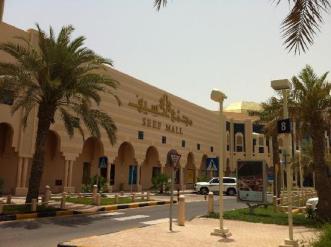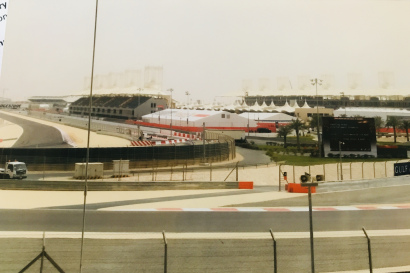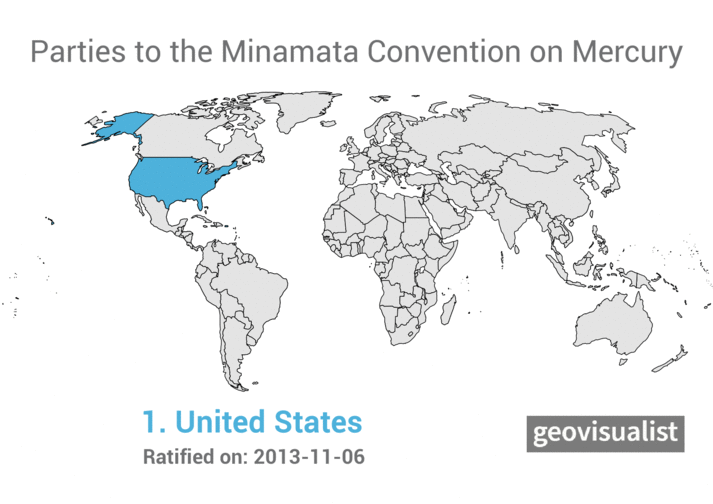The author is a travel and features writer. This is an account of her expat years. Names have been fiddled with to avoid offence but most of what you’ll read here is true. She loves the UK, but hopes to live abroad again before she’s of pensionable age.
Part 18 BackgroundIn 2006, a family of Simpsons from the East of England moved to the Middle East. For the purposes of this story-in-parts, and to allow a little distance from Mr, Mrs and the three mini Simpsons (boy, girl, girl), they will now be referred to as Marge, Homer, Bart, Lisa and Maggie – their Springfield counterparts. When they moved across the world, this Marge and Homer were in their forties, Bart was 13, Lisa was 10 and Maggie was four.
Year 2 March/April 2008Marge’s friendship group has evolved. No longer craving people who remind her of X, Y and Z back home, she has formed new and different friends. Cassie from the school gates – funny and irreverent; she and Marge bond over their first supper out. Believing she’s eaten most things, Marge discovers she has not. Every one knows that edamame pods in fancy Japanese restaurants cannot be chewed and swallowed.

Suck and Chuck
Everyone that is, except for Marge. Cassie observes Marge with interest. Do Brits (as sophisticated as Marge) know something about edamame etiquette that Aussies don’t? Trying to contain her amusement, Cassie finally takes pity on her masticating friend and hands Marge a napkin in which to spit her faux pas.
Mika, gentle and creative, serves lovely cakes and does exciting craft projects. Mums are grateful, children are in awe. Deanna across the street – Maggie’s home from home – whose affectionate giant dog occasionally leaves snail trails of exuberant WELCOME! slobber over Maggie’s hair, is the best sort of neighbour – always there for a chat, a drink, to offer support. And Wendy – mum of Bart’s best buddy – is Marge’s vital ally for parenting teenage boys. Even the Ambassador’s wife, despite her status, keeps it (sort of) real. Fed up with stuffy embassy functions she does a supper for friends. A surprisingly relaxed affair, with interesting and eclectic guests, Marge, to her delight, gets seated next to a charismatic spy. James Bond aside, Marge is glad to be in the company of such impressive women who remain down to earth and true to themselves.
With her social life blossoming, Marge learns several things. Friends are extended family and expat life is transitory. It is advisable to erect emotional boundaries to minimise the loss when people you grow close to leave for their next posting.
At work as well, boundaries are vital. Boss Lady’s behaviour is a minefield to negotiate. Her gallery is beautiful, as is her Jimmy Choo handbag, and there is no denying her passion for contemporary Middle Eastern art, yet she exists in a state of perpetual hysteria (and not the funny kind). Marge is intrigued. Does she suffer from some dreadful hormone imbalance? Marge doesn’t like to blame the strops on hormonal fluctuations – very unsisterly – but from her own (occasional) experience (though Homer has learnt never to allude to it) there are days in a month when everyone, apart from her, becomes a bloody moron. But this woman’s levels of rage are in a different sphere. Either the hormones are stuck or something else is at play.
Before too long, Boss Lady’s fury is directed at Marge. Preparing the gallery for a new exhibition (the art is stunning, the gallery looks lovely, the works are for sale), Marge notices there is no information about any of them anywhere.
“Will there be a brochure?” she asks. Her nice colleague is not sure. It’s up to Boss Lady who is currently out.
Marge (foolishly) takes it upon herself to write small, inconspicuous labels with the name of each work, its artist, and the price. She attaches them to the wall next to each painting.
“WHO DID THIS?” screeches Boss Lady upon her return. She tears around the gallery, foaming at the mouth, scraping labels with her nails. “WHO? WHO? WHO?” she shrieks.
Marge takes a deep breath and steps forward. “I did,” she says. “I thought you were hoping to make some sales tonight. I thought our clients would like to know what they were looking at and how much the paintings cost.”
Boss Lady, draws breath, narrows her eyes and with the iciest of smiles hisses, “Your handwriting is disgusting. A gallery is about aesthetics. You are an idiot.”
“I was not aware that my handwriting was a requirement for this job,” Marge says evenly. “Art galleries in London often have information next to their paintings. But if you don’t want that, I’ll take them down.” Marge removes them all and throws them in the bin.
Later, at the opening of the exhibition, each painting has an information label stuck next to it. Remarkably similar to the ones Marge had made that morning. Twenty years earlier, a boss like this would have rendered Marge a nervous wreck. Now she doesn’t care enough. Until she witnesses Boss Lady about to hit her Indian accountant, because he cannot locate a file she’s demanded. Marge’s presence makes BL pause, but the man’s humiliation is so complete that Marge has to leave the room. She listens outside the door, angry and conflicted, and vows that next time she will intervene.
Weekends give the family five and a half extra hours in bed – and it’s still only ten thirty when they finally emerge. Downstairs, making toast and coffee, Marge finds an infestation in the cereal cupboard. Her very own barometer – a sugar-ant invasion signals the start of warmer weather.
There are birthdays to be celebrated. Maggie and her friends have a stress-free Hawaiian Beach Party at Expat Heaven – it’s a lovely day, sunny and warm; happy children, happy parents. A Prophet has his birthday; the Simpsons are back at the RC enjoying the tra-la-la-our-life’s-a-holiday loveliness.

Expat Heaven – The Ritz Carlton
There, Marge enjoys a swim. The water’s crisp, refreshing, and when she’s done, she pulls herself out of the pool, sleek and glistening – she’s Bo Derek, she’s Ursula Andress – and sashays round to Homer on the other side. A little embarrassed by all the admiring glances in her wake, she flicks her hair, spattering crystal droplets all over Homer. He glances up. His eyes widen.
She’s looking good.
“Marge,” he hisses, “Marge!”
He’s doing something strange with his head – a sort of downward jutting movement.
“Are you alright Homer?” Marge asks, with a foxy grin.
“Sit down Marge,” he urges.
Why is he not admiring and appreciative?
“Your bikini – look!”
Marge looks.
Then looks again.
And –
<*>*!*g hell.
The elastic in her bargain TK Maxx bikini bottoms has stretched and died.
Her lady hair is springing free.
For the first time in her life, Marge must buy swimwear that fits properly and works in water. And good thing she does, because now it’s Easter – and there’s an Easter party to attend. With their neighbour friends. Back at the Pool of Shame. Three times in one month! Marge, has, she realises, succumbed. A proper expat at last. Life in Bahrain revolves around the sand, the water and the Ritz Carlton.
Before the end of the holidays, with Maggie turning six, Marge negotiates. Six is old. Probably too old to still be sucking a thumb. Perhaps Maggie would like to stop? Maggie thinks about it for a while, weighs up the pros and cons, and finally agrees. And also, Marge continues (two birds with one stone…) Maggie might like to ride her new bike without stabilisers now – like all the other children in their compound. If Marge is honest, she had rather hoped that somehow, by osmosis, or with a little help from Lisa and Bart, Maggie would have learnt to do this by herself. Unfortunately this isn’t the case, and it is down to some serious bribery – a trip to the BSPCA shelter to pet puppies and kittens if she nails it (just pet, no, she can’t bring one home with her) – that she agrees to let Marge and Homer, one stickily hot weekend, when none of the other compound children are about to witness her humiliation, race up and down the street behind her, pushing her, yelling encouragement and picking her up when she falls.

Several long hours later and Maggie cycles solo to the end of her street. Marge and Homer feel like they and impressive parenting are having a moment.
Until Bart meanders through his exams without any revision. Marge is stressed as hell. How can anyone just turn up for an exam without sweating blood and tears? She and Bart are at cross-purposes on this one. He is not worried, he tells her. So why is she? She doesn’t know, she thinks crossly. She just is. Perhaps if he applied the same focus and effort that he puts into his social life to the organisation of his schoolwork she might not have to be. Thursday nights after a game of football at the Rugby Club he and his friends disappear for the weekend to any one of their houses. Houses are on compounds. Compounds have pools. They have their freedom. The parents know they are safe.
Lisa, soon to be thirteen, is just discovering independence too. Cinema and swimming and shopping with friends. But a recent weekend trip to Seef Mall saw the girls receiving a lot of hassle from males on the prowl. The girls were not fazed, but Marge is. The Mall is one of the few places single women and men can meet whilst pretending not to meet. It is also a magnet for the influx of repressed males over from Saudi each weekend.

Little adjustments to the elder children’s upbringing are frequently made to accommodate the country’s culture. The way they dress, how they behave, where they go, what they do. Nothing too drastic or dramatic, but advice from school, from friends, is dissected, discussed and adapted to requirements as necessary. As the children get older, they will learn – particularly the girls – (from British Embassy officials who come into the schools to advise on safe conduct in a Muslim country) that if they do not dress modestly and if a man harasses them, it can happen that they might be accused of provocation. If this is taken to the police they will be the guilty party, not the person who has behaved inappropriately towards them in the first place. Marge does not want to rein in Lisa’s social life before it’s begun, but harassment and being on your guard on a daily basis is challenging enough for women of Marge’s age. She would rather Lisa was not confronted with it just yet. Shopping trips are saved for weekdays. Weekends are spent with friends on compounds.
Bahrain’s judicial system continues to confound Marge. In the news three convicted paedophile rapists have their sentences slashed from a paltry three years to six months. But three men caught robbing a cold store, are jailed for ten years. It’s all incomprehensible.
A maid, known to Marge, is very unhappy. Not because she must work twelve hours a day, six days a week. That – she is resigned to. Rather Sir and Madam, for whom she works, have just employed a live-in driver. And have converted the swimming pool’s toilet and shower room, next to her bedroom, into his living space. And have instructed her that not only must she share her kitchen with him, but she must cook for him too. He is Sudanese. She is Indian. She is married. He is not. A cultural no-no in every way; her (British) employers do not care. The same week, Marge learns that the Filipina waitresses at her art gallery’s café, working ten-hour shifts, can only take one ten-minute break all day and may not eat or sit whilst on duty. It’s times like these that Marge misses things she took for granted back home.
Talk turns to the future. Originally, Homer had mooted that they live in Bahrain for a couple of years. But with Bart only halfway through his GCSEs it is obvious that they will be there a third. Then, wherever they go next, they will have to stay put for three more years whilst Bart does A Levels and Lisa GCSEs. With senior school children, the length of expat postings becomes governed by the children’s exams. Marge and Homer are equable about the process. They are enjoying the adventure and, having heard from friends that the British economy is in a state of crisis, they wish, for the moment to continue ‘living the dream’, despite the factors that are hard to swallow. And the building work that has started on their compound. Their landlord (greedy bugger) has decided to build four new houses on the sandy waste ground at the end of their drive; the children’s precious play area. No one in the street is delighted about this news. The work is likely to take a couple of years. They will be living on a building site. Their houses shake from the drilling from seven each morning, and they are all tied in to contracts that their landlord (failing to mention his expansion plans) cannily negotiated.
The Spring of Culture Festival starts as Bart’s best friend from the UK comes to stay. Marge is excited about the rare glut of cultural activities on offer – art, music, theatre, poetry, film and dance, but also enjoys again, through the eyes of their guest, the souk, the desert and the waterpark. Where the Shopping Festival attracted the entire population of Bahrain, The Spring of Culture Festival appeals to just some of the expats. Hailed as “a truly inclusive event for families”, tickets for each activity start at £40/person. So, not quite that inclusive after all.
But it is the Grand Prix at the end of Culture Month that causes the greatest dissent. Taking place after the start of the school term, the letters page in the local newspaper is awash with complaints from disgruntled parents. Their children cannot now attend the race as they’ll be at school. It just isn’t fair. And throughout the island, irate Shia activists, wishing to show the outside world their truth, protest at what they see as an elitist, exclusive waste of money and the injustices they must face at the hands of the Sunni ruling classes.

Bahrain Grand Prix F1 Track
Homer takes Bart, his visiting bestie, and Lisa for a sneaky elitist day out at the Grand Prix. Maggie, given the choice, opts to go to school. And Marge, who has recently had a slight email wrangle with Boss Lady about her pay being docked…
BL: “We work for the love of the arts. If the reason you wanted this job is to be paid, then I suggest you look elsewhere.”
Marge: “The money is not as important as being treated with courtesy and respect and working in a harmonious and collegiate manner.”
…braves a day at work, more than a little surprised to be greeted with something approaching a smile and the deducted cash, in an envelope, on her desk.
Continued here: View From A Broad Part 19
Advertisements Share this:





